Kazutoshi Sasahara
Segregation Before Polarization: How Recommendation Strategies Shape Echo Chamber Pathways
Jan 23, 2026Abstract:Social media platforms facilitate echo chambers through feedback loops between user preferences and recommendation algorithms. While algorithmic homogeneity is well-documented, the distinct evolutionary pathways driven by content-based versus link-based recommendations remain unclear. Using an extended dynamic Bounded Confidence Model (BCM), we show that content-based algorithms--unlike their link-based counterparts--steer social networks toward a segregation-before-polarization (SbP) pathway. Along this trajectory, structural segregation precedes opinion divergence, accelerating individual isolation while delaying but ultimately intensifying collective polarization. Furthermore, we reveal a paradox in information sharing: Reposting increases the number of connections in the network, yet it simultaneously reinforces echo chambers because it amplifies small, latent opinion differences that would otherwise remain inconsequential. These findings suggest that mitigating polarization requires stage-dependent algorithmic interventions, shifting from content-centric to structure-centric strategies as networks evolve.
Morality-based Assertion and Homophily on Social Media: A Cultural Comparison between English and Japanese Languages
Aug 24, 2021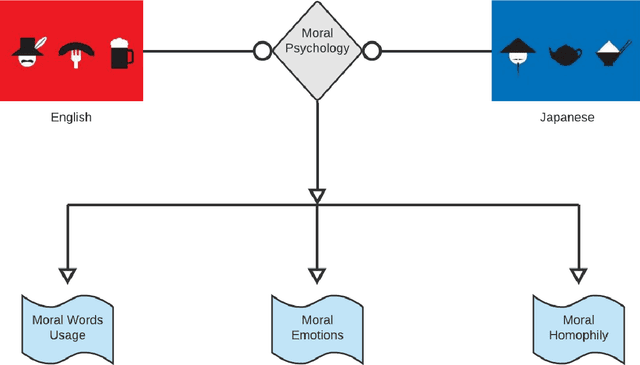
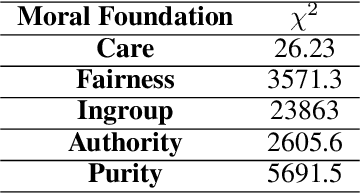
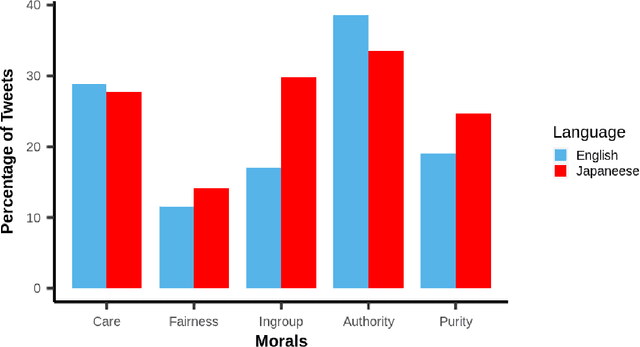
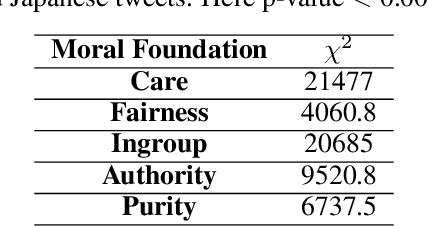
Abstract:Moral psychology is a domain that deals with moral identity, appraisals and emotions. Previous work has greatly focused on moral development and the associated role of culture. Knowing that language is an inherent element of a culture, we used the social media platform Twitter for comparing the moral behaviors of Japanese users with English users. The five basic moral foundations i.e., Care, Fairness, Ingroup, Authority and Purity, along with the associated emotional valence are compared for English and Japanese tweets. The tweets from Japanese users depicted relatively higher Fairness, Ingroup and Purity. As far as emotions related to morality are concerned, the English tweets expressed more positive emotions for all moral dimensions. Considering the role of moral similarities in connecting users on social media, we quantified homophily concerning different moral dimensions using our proposed method. The moral dimensions Care, Authority and Purity for English and Ingroup for Japanese depicted homophily on Twitter. Overall, our study uncovers the underlying cultural differences with respect to moral behavior in English and Japanese speaking users.
Inference of Personal Attributes from Tweets Using Machine Learning
Dec 24, 2017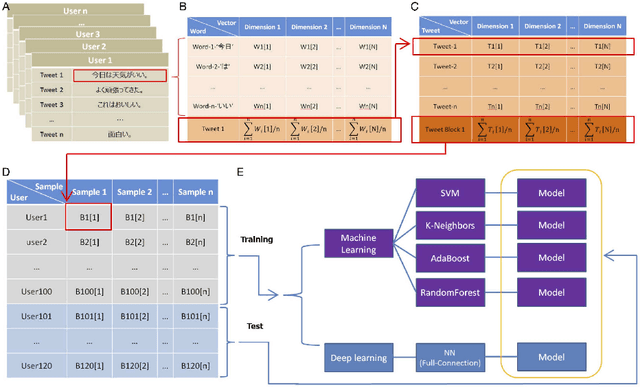

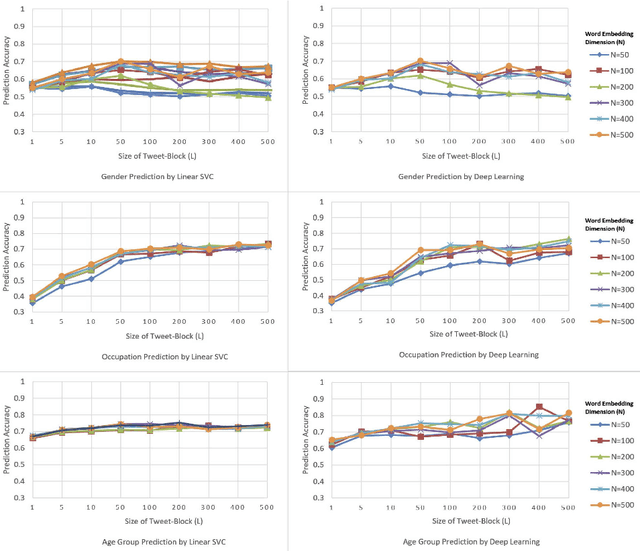

Abstract:Using machine learning algorithms, including deep learning, we studied the prediction of personal attributes from the text of tweets, such as gender, occupation, and age groups. We applied word2vec to construct word vectors, which were then used to vectorize tweet blocks. The resulting tweet vectors were used as inputs for training models, and the prediction accuracy of those models was examined as a function of the dimension of the tweet vectors and the size of the tweet blacks. The results showed that the machine learning algorithms could predict the three personal attributes of interest with 60-70% accuracy.
 Add to Chrome
Add to Chrome Add to Firefox
Add to Firefox Add to Edge
Add to Edge